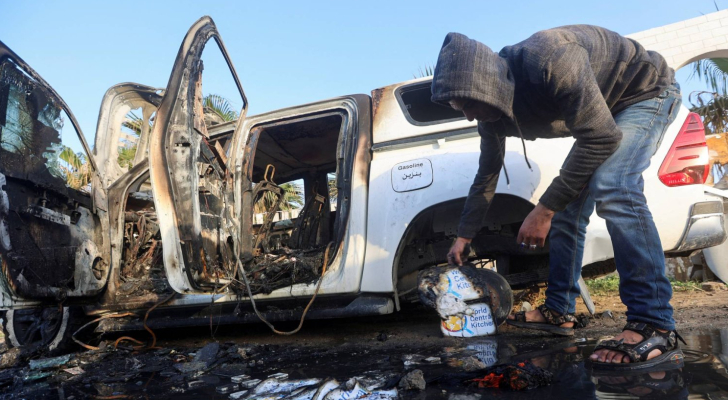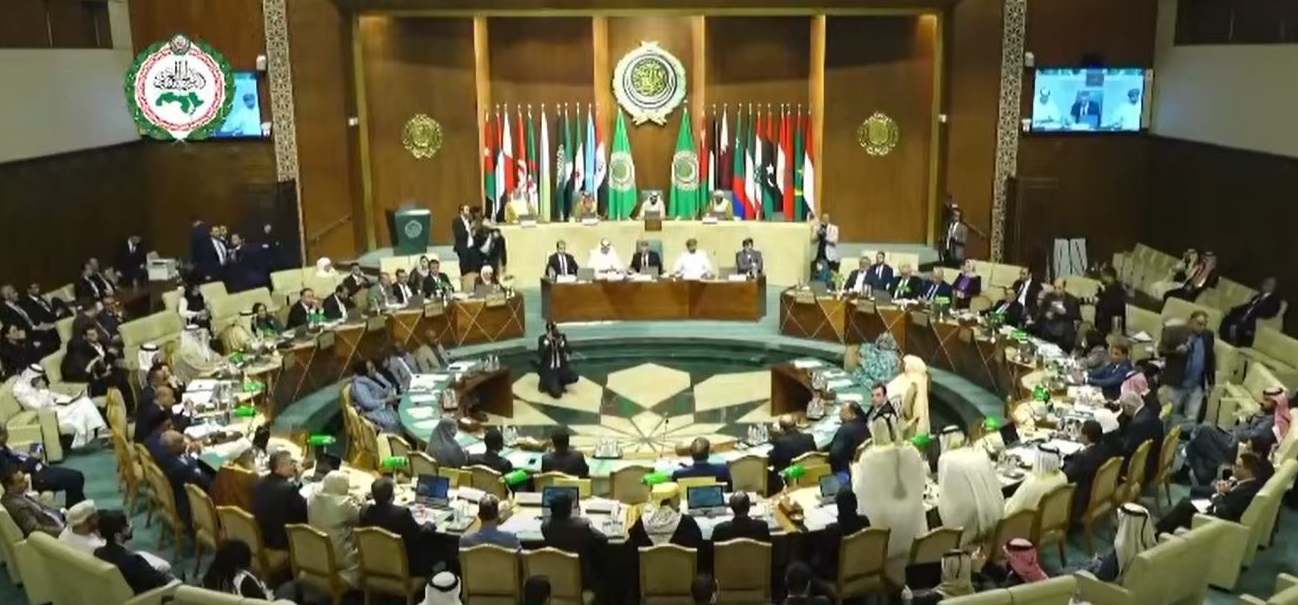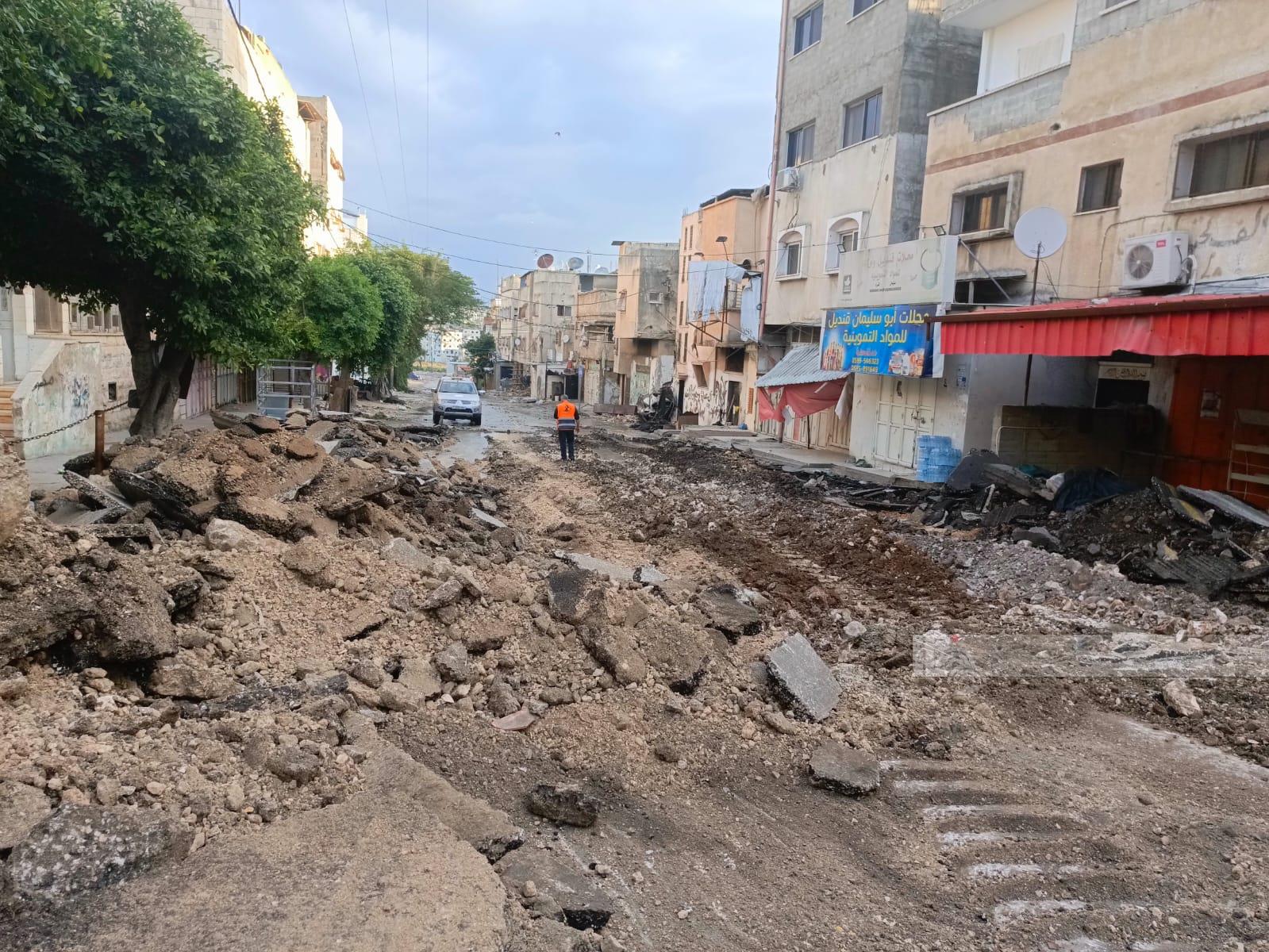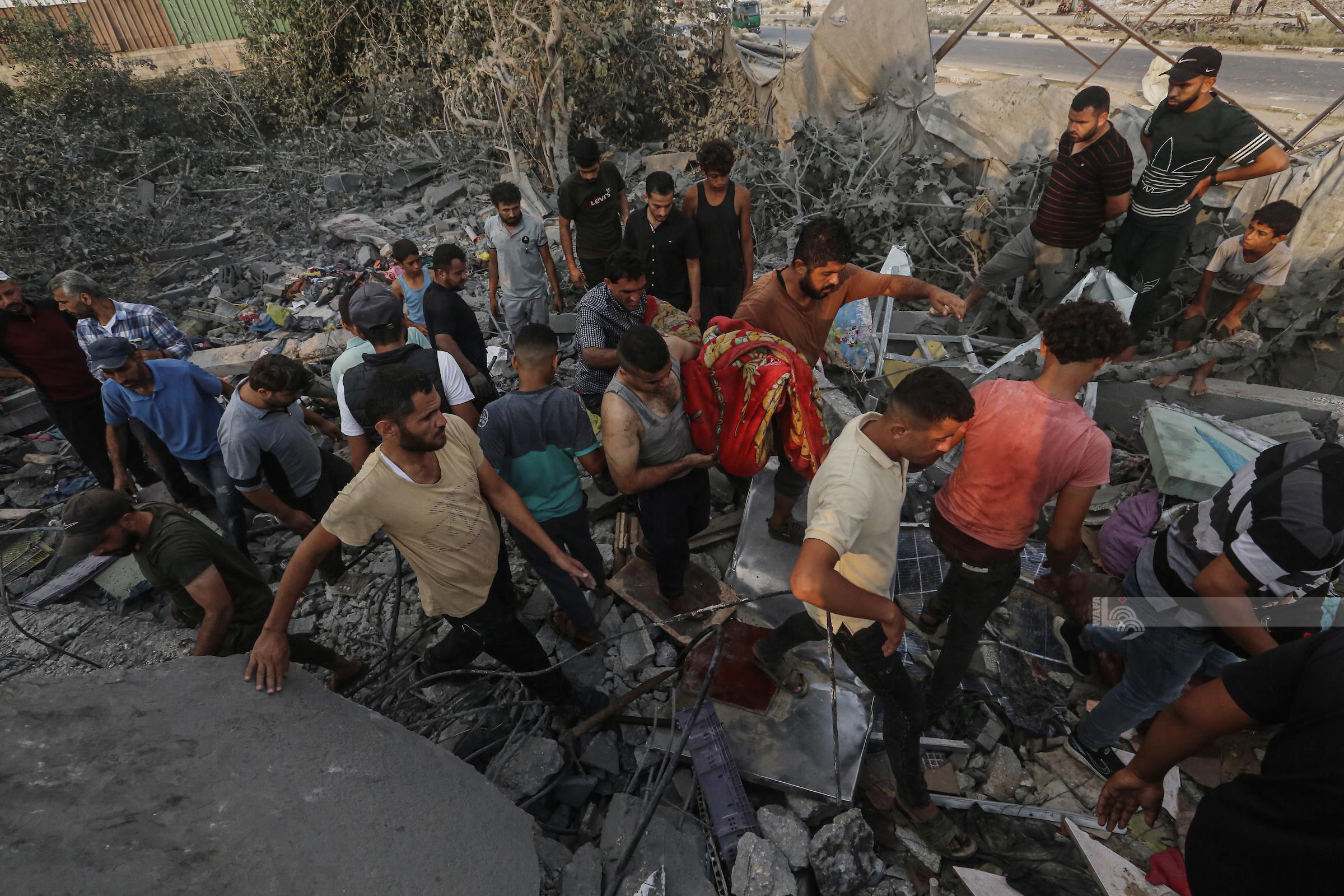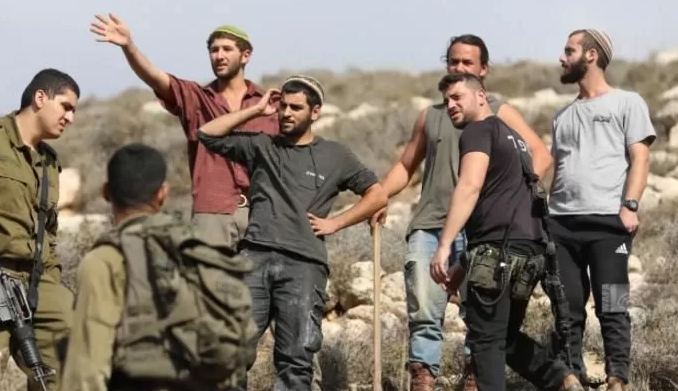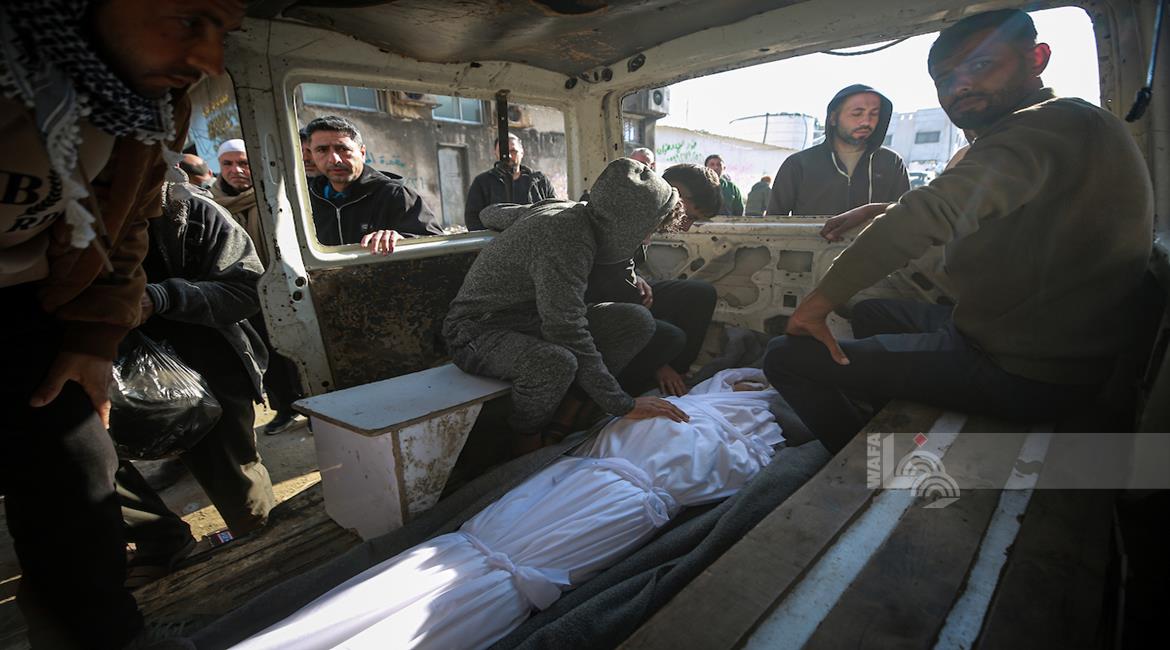RAMALLAH, Tuesday, May 14, 2024 (WAFA) – Israeli forces have carried out at least eight strikes on aid workers’ convoys and premises in Gaza since October 2023, even though aid groups had provided their coordinates to the Israeli authorities to ensure their protection, Human Rights Watch said today. Israeli authorities did not issue advance warnings to any of the aid organizations before the strikes, which killed or injured at least 31 aid workers and those with them.
More than 250 aid workers have been killed in Gaza since the October 7 assault in Israel, according to the UN.
One attack on January 18, 2024, injured three people who were staying in a joint guest house belonging to two aid organizations and was most likely carried out with a US-made munition, according to one of the organizations and to a report by UN investigators who visited the site after the attack, which Human Rights Watch reviewed. One of the aid organizations, Medical Aid for Palestinians (MAP), said UN inspectors concluded that the bomb was delivered by an F-16 aircraft. F-16 aircraft use British made components according to campaigners.
The eight incidents reveal fundamental flaws with the so-called deconfliction system, meant to protect aid workers and allow them to safely deliver life-saving humanitarian assistance in Gaza.
“Israel’s killing of seven World Central Kitchen aid workers was shocking and should never have happened under international law,” said Belkis Wille, associate crisis, conflict, and arms director at Human Rights Watch. “Israel’s allies need to recognize that these attacks that have killed aid workers have happened over and over again, and they need to stop.”
Israel’s attack on April 1 on the World Central Kitchen convoy, which killed seven workers, far from being an isolated “mistake,” is just one of at least eight incidents that Human Rights Watch identified in which aid organizations and UN agencies had communicated with Israeli authorities the GPS coordinates of an aid convoy or premises and yet Israeli forces attacked the convoy or shelter without any warning.
In these eight incidents, Israeli forces killed at least 15 people, including 2 children, and injured at least 16 others. Five of these attacks were the subject of a recent New York Times investigation that included visual evidence and internal communications between aid organizations and the Israeli military.
The other seven attacks are:
- Attack on a Médecins Sans Frontières (MSF or Doctors without Borders) convoy, November 18, 2023
- Attack on a guest house of the United Nations Relief and Works Agency for Palestine Refugees in the Near East (UNRWA), December 9, 2023
- Attack on an MSF shelter, January 8, 2024
- Attack on an International Rescue Committee (IRC) and Medical Aid for Palestinians (MAP) guest house, January 18, 2024
- Attack on an UNRWA convoy, February 5, 2024
- Attack on an MSF guest house, February 20, 2024
- Attack on a home sheltering an American Near East Refugee Aid Organization (Anera) employee, March 8, 2024
As of April 30, the UN reported that 254 aid workers had been killed in Gaza since October 7, 2023, with UNRWA personnel accounting for 188 of these fatalities. On May 13, a UN vehicle was hit on the way to a hospital in Gaza, killing at least one UN staff member and injuring at least one more. According to UNRWA, 169 of its facilities have been affected by the hostilities in 368 incidents and at least 429 displaced people have been killed in UNRWA shelters. Israeli forces have, according to the UN, also shot at and shelled people congregating to collect aid, killing and injuring hundreds. These attacks are having a chilling effect on efforts to provide lifesaving aid in Gaza.
Aid workers have also been unable to leave Gaza, since Israeli forces seized control of and closed the Rafah Crossing on May 7.
During a recent trip to Cairo and northern Sinai, near the border between Egypt and Gaza, Human Rights Watch met with staff from 11 humanitarian organizations and UN aid agencies operating in Gaza who said that Israeli attacks on aid workers had forced them to take various measures that for some included suspending activities for a period of time, reducing their staff inside Gaza, or severely restricting their aid activities in other ways.
“I can’t risk sending more staff into Gaza because I cannot rely on deconfliction as a way of keeping them safe,” a senior employee from one of the organizations whose guest house was attacked told Human Rights Watch. He said this was a key factor in limiting the organization’s ability to provide medical services. “You can build docks and send shipments, but without a safe operating environment, you will have a pile up of shipments that people aren’t able to deploy safely to help people.”
This pattern of attacks despite proper notification of Israeli authorities raises serious questions about Israel’s commitment and capacity to comply with international humanitarian law, which some countries, including the UK, rely on to continue to license arms exports that end up in Israel.
Human Rights Watch has found that Israeli authorities are using starvation as a method of warfare in Gaza. Pursuant to a policy set out by Israeli officials and carried out by Israeli forces, the Israeli authorities are deliberately blocking the delivery of water, food, and fuel, willfully impeding humanitarian assistance, apparently razing agricultural areas, and depriving the civilian population of objects indispensable to its survival. Children in Gaza have been dying from starvation-related complications.
Israel has not responded to a Human Rights Watch letter sent on May 1, requesting specific information about the attacks on aid workers documented in this report.
The laws of war prohibit attacks that target civilians and civilian objects, that do not discriminate between civilians and combatants, or that are expected to cause harm to civilians or civilian objects that is disproportionate to any anticipated military advantage. Indiscriminate attacks include attacks that are not directed at a specific military target or use a method or means of combat whose effects cannot be limited as required.
Warring parties must take all feasible precautions to minimize harm to civilians, including by providing effective advance warnings of attacks unless circumstances do not permit, and by sparing civilians under their control from the effects of attacks. Serious violations of the laws of war committed by individuals with criminal intent – that is, deliberately or recklessly – are war crimes.
Israel should make public the findings of investigations into attacks that have killed and injured aid workers, and into all other attacks that caused civilian casualties. The Israeli military’s long track record of failing to credibly investigate alleged war crimes underscores the importance of the International Criminal Court’s (ICC) inquiry into serious crimes committed by all parties to the conflict.
Israeli and Palestinian officials should cooperate with the ICC in their work, Human Rights Watch said. Israel should also provide the Independent International Commission of Inquiry on the Occupied Palestinian Territory, including East Jerusalem, and Israel access to Gaza to conduct its investigations.
Given the pattern of attacks on aid groups that have provided Israeli authorities with proper information about their locations, a group of recognized international experts should conduct an independent review of the humanitarian deconfliction process. Israel should give these experts full access to its processes, including the coordination and communications that occur before, during, and after such attacks as well as information regarding any alleged military target in the vicinity and any precautionary measures taken to mitigate harm.
Israel’s allies, including the United States and United Kingdom – both states sending the weapons parts apparently used in at least one of the documented attacks – should suspend military assistance and arms sales to Israel so long as its forces commit systematic and widespread laws-of-war violations against Palestinian civilians with impunity. Governments that continue to provide arms to the Israeli government risk complicity in war crimes.
They should also use their leverage, including through targeted sanctions, to press Israeli authorities to cease committing grave abuses and enable the provision of humanitarian aid and basic services in Gaza, in accordance with Israel’s obligations under international law and recent International Court of Justice (ICJ) orders to Israel in the case brought by South Africa concerning alleged violations of the Genocide Convention.
“On one hand, Israel is blocking access to critical lifesaving humanitarian provisions and on the other, attacking convoys that are delivering some of the small amount that they are allowing in,” Wille said. “Israeli forces should immediately end their attacks on aid organizations, and there should be accountability for these crimes.”
K.T



